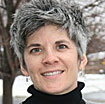Commentary on Psalm 139:1-6, 13-18
The homiletical possibilities for Psalm 139 are numerous and varied, ranging from satisfying to complex to potentially problematic.1
Satisfying
My nephew was born on the day I started working on this commentary. When the picture of Mason James arrived, my initial thoughts were, “There you are. What were you doing in there all of these months?” And then I read:
For it was you who formed my inward parts;
you knit me together in my mother’s womb (verse 13).
“How did you go from a hoped-for dream of your parents to flesh and blood, bones, muscles and those long, skinny fingers and those cute ears?” I wondered. Then I read:
My frame was not hidden from you, when I was being made in secret, intricately woven in the depths of the earth. Your eyes beheld my unformed substance (verse 15).
I wanted to shout, “Mason, you are perfect.” Yet this acclamation paled in comparison to his parents’ “You are perfect!” which pales in comparison to God’s “You are PERFECT!”
My hope for this little guy on his first day, his birth day, was that one day he would realize and pray with the psalmist,
I praise you, for I am fearfully and wonderfully made (verse 14).
As we all know, context changes how we read biblical texts. Mason’s earlier-than-expected entrance into this world affected the center of gravity of Psalm 139 for me. That might be the case for you too. If there are newborns in your congregation, highlight God’s deep relationship with them from the beginning … and even before that … and from this day forward.
The words of this Psalm are similarly powerful for those of us who are well beyond our days of birth. To recall our own humble beginnings and God’s intimate involvement in that dawning is to bring us to pray with the Psalmist,
O Lord, you have searched me and known me (verse 1).
Complex
While the verses included in the lectionary seem to compel preachers to emphasize the pleasing imagery identified above, the omitted verses cannot be overlooked. Since life’s delights are often peppered with complexities, attending to the “spicier” verses helps the preacher model a way to call a thing what it actually is (Luther’s definition of a theologian of the cross). When preaching on Psalm 139, that means being honest about the complexity of being known.
Some people struggle with a fear of really being known even as they desire to be known. Some go to great lengths not to be known by hiding their true identities even (especially?) from God. It cannot be assumed that verse 7 is received as good news for all.
Where can I go from your spirit? Or where can I flee from your presence? (verse 7)
Once again, context changes how we view biblical texts.
A colleague reminded me that while this Psalm’s references to “hand” (verses 5, 10) can be comforting and serve as a guide, they can also weigh heavily. “Being so close to God is as burdensome as it is beautiful.” The Psalmist admits, one cannot flee (verse 7) from the one for whom darkness does not overwhelm (verse 11). Why would he flee from something beautiful? For some the thought that God lurks and works even in dark places (in Sheol and in the womb!) might be burdensome.
The complexity of being known is a rich homiletical theme for this Sunday’s epiphany sermon. As the primary preaching text, Psalm 139 could be illustrated by Samuel’s story of being known and sought out by God (“The Lord called Samuel again, a third time.”), and Nathaniel’s story of being known and seen by God (“Nathaniel asked Jesus, ‘Where did you get to know me?’”).
Ultimately, the Psalmist recognizes that when the knower is God, the vulnerability is worth it. The Psalmist resigns to God’s inescapable presence in his life and embraces it by confirming his own identity in light of how God sees him:
I praise you, for I am fearfully and wonderfully made. Wonderful are your works; that I know very well (verse 14).
Problematic (?)
Although Psalm 139 takes a noticeably ugly turn at verse 19, this too cannot be ignored. One possible way to attend to the often-ignored verses at the end of the Psalm is to imagine what it might be like to be so convinced of one’s intimate connection with God that an assault on one’s own identity is an assault on God, and an assault on God’s identity is an assault on oneself. No wonder the Psalmist is passionate. The intimacy between one’s own identity and God’s identity might be prompting Paul’s question: “Or do you not know that your body is a temple of the Holy Spirit within you, which you have from God, and that you are not your own?” (I Corinthians 6:19)1
I can imagine a sermon progressing from 1) a simple and pleasing articulation of what it is to be known, to 2) identifying and illustrating the complexities of being known, to 3) proclaiming that the God is a trustworthy and faithful knower, to 4) describing our own identity as the people of God in light of who God is and what God does. Even more, this is a wonderful opportunity for the preacher to describe the hearers’ identity according to how God sees them. “You are fearfully and wonderfully made” might pale in comparison with how God actually sees them, but this glimpse might be just the epiphany that prompts some to embrace it for themselves and to the glory of God.2
Notes:
- Commentary first published on this site on Jan. 18, 2015.
- For a helpful article on imprecatory Psalms, see Joel L. LeMon, “Saying Amen to Violent Psalms: Patterns of Prayer, Belief, and Action in the Psalter” in Soundings in the Theology of Psalms: Perspectives and Methods in Contemporary Scholarship, ed. Rolf A. Jacobson (Minneapolis: Fortress Press, 2011), 93-109.


January 17, 2021